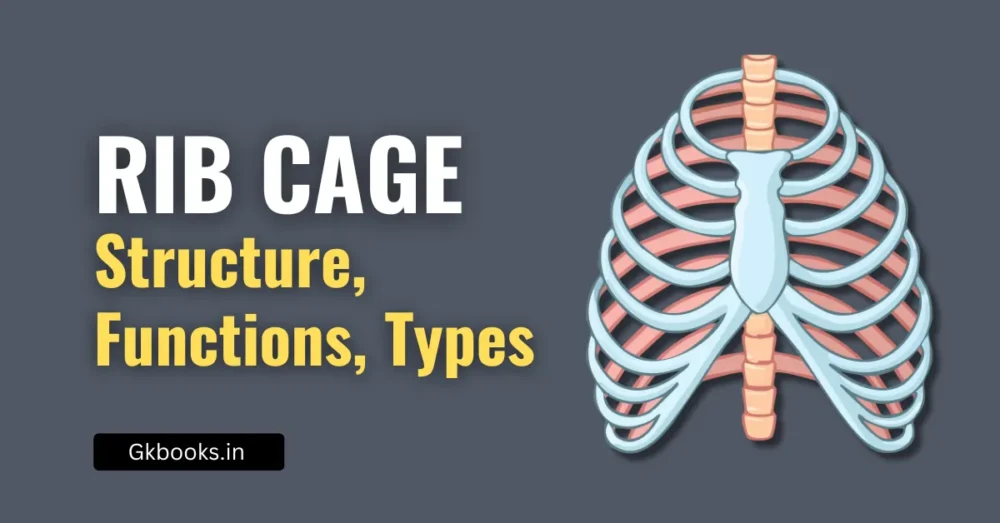Vitamins are important nutrients that keep our body strong and healthy. Water-soluble vitamins are a special type of vitamin that dissolves in water. Our body does not store them, so we need to take them daily through food. The two main types of water-soluble vitamins are Vitamin C and B-complex vitamins (like B1, B2, B3, B5, B6, B7, B9, and B12). These vitamins help in energy production, brain function, and keeping our skin, hair, and blood cells healthy.
For competitive exams like SSC, Banking, RRB NTPC, UPSC, and State-level exams, questions on vitamins are common. You must know their sources, functions, and deficiency diseases. This article will help you learn the key facts about water-soluble vitamins in a simple and easy way. Keep reading to boost your General Science and Biology knowledge!
Vitamins are essential nutrients that our body needs in small amounts to function properly. They help in growth, immunity, and metabolism. Vitamins are classified into two types:
- Fat-Soluble Vitamins – Stored in the body’s fat tissues (Vitamins A, D, E, and K).
- Water-Soluble Vitamins – Dissolve in water and are not stored in the body. Excess amounts are excreted through urine.
In this article, we will focus on Water-Soluble Vitamins, their types, functions, sources, and deficiency diseases.
Types of Water-Soluble Vitamins
Water-soluble vitamins include Vitamin C and B-Complex Vitamins. The B-Complex group consists of eight vitamins.
| Vitamin | Alternative Name | Functions | Sources | Deficiency Diseases |
|---|---|---|---|---|
| Vitamin B1 | Thiamine | Helps convert food into energy | Whole grains, nuts, pork | Beriberi (weak muscles, fatigue) |
| Vitamin B2 | Riboflavin | Supports cell growth, good vision | Milk, eggs, green leafy vegetables | Skin disorders, sore throat |
| Vitamin B3 | Niacin | Helps in digestion, skin health | Meat, peanuts, mushrooms | Pellagra (diarrhea, mental confusion) |
| Vitamin B5 | Pantothenic Acid | Produces hormones, supports metabolism | Avocados, eggs, whole grains | Fatigue, numbness |
| Vitamin B6 | Pyridoxine | Helps make red blood cells | Bananas, chicken, potatoes | Anemia, depression |
| Vitamin B7 | Biotin | Supports hair, skin, and nail health | Nuts, eggs, sweet potatoes | Hair loss, brittle nails |
| Vitamin B9 | Folic Acid (Folate) | Essential for cell division, prevents birth defects | Green leafy vegetables, citrus fruits | Anemia, birth defects |
| Vitamin B12 | Cobalamin | Keeps nerves and blood cells healthy | Meat, dairy, fish | Pernicious anemia, memory loss |
| Vitamin C | Ascorbic Acid | Boosts immunity, helps in wound healing | Citrus fruits, tomatoes, bell peppers | Scurvy (bleeding gums, weakness) |
🔰Vitamins, Source, Chemical Names, and Deficiency disease
Key Functions of Water-Soluble Vitamins
1. Vitamin C (Ascorbic Acid)
- Boosts the immune system.
- Helps in the healing of wounds.
- Aids in iron absorption from food.
- Acts as an antioxidant, protecting cells from damage.
2. B-Complex Vitamins
- Help in energy production by breaking down food.
- Maintain a healthy nervous system.
- Support red blood cell formation.
- Promote healthy skin, hair, and digestion.
Why Are Water-Soluble Vitamins Important?
Unlike fat-soluble vitamins, water-soluble vitamins cannot be stored in the body. This means we must consume them daily through a balanced diet. A deficiency in these vitamins can lead to various health problems, affecting energy levels, immunity, and organ function.
Tips to Maintain Healthy Levels of Water-Soluble Vitamins:
✅ Eat a variety of fruits and vegetables every day.
✅ Include whole grains, dairy, and nuts in your diet.
✅ Avoid overcooking vegetables to preserve vitamin content.
✅ Drink fresh fruit juices instead of processed drinks.
✅ Maintain a balanced diet instead of relying on supplements.
Conclusion
Water-soluble vitamins play a crucial role in keeping our body healthy and active. Since they are not stored in the body, we need to consume them daily from natural sources. Eating a balanced diet rich in fresh fruits, vegetables, and whole grains will help prevent deficiencies and keep us fit.
🌟 Remember: A healthy diet means a healthy mind and body! Keep learning, stay healthy, and ace your exams! 💪📚
To stay updated with the latest GK and Current Affairs infographics, follow our official Instagram and Facebook page and prepare for exams easily.







